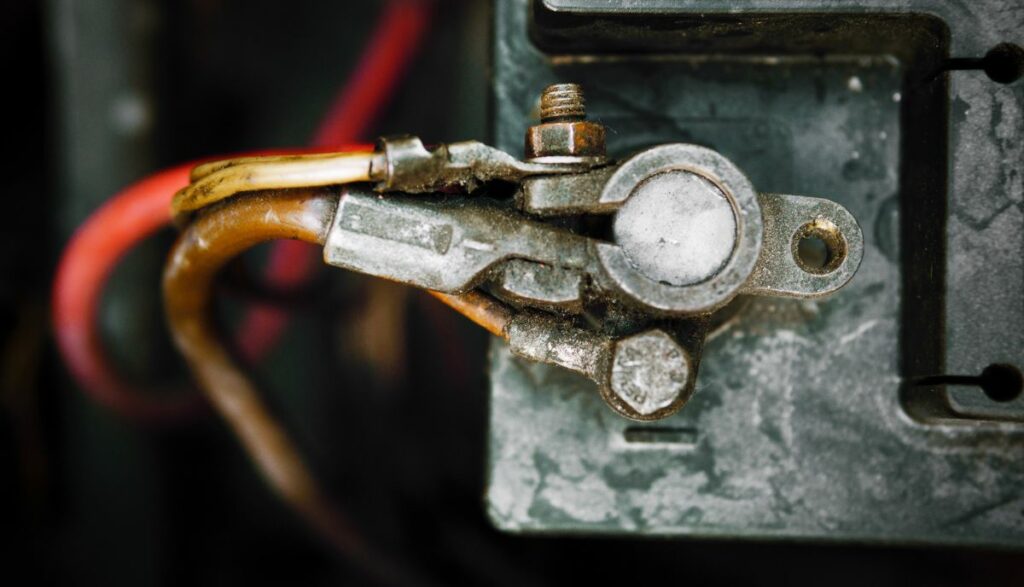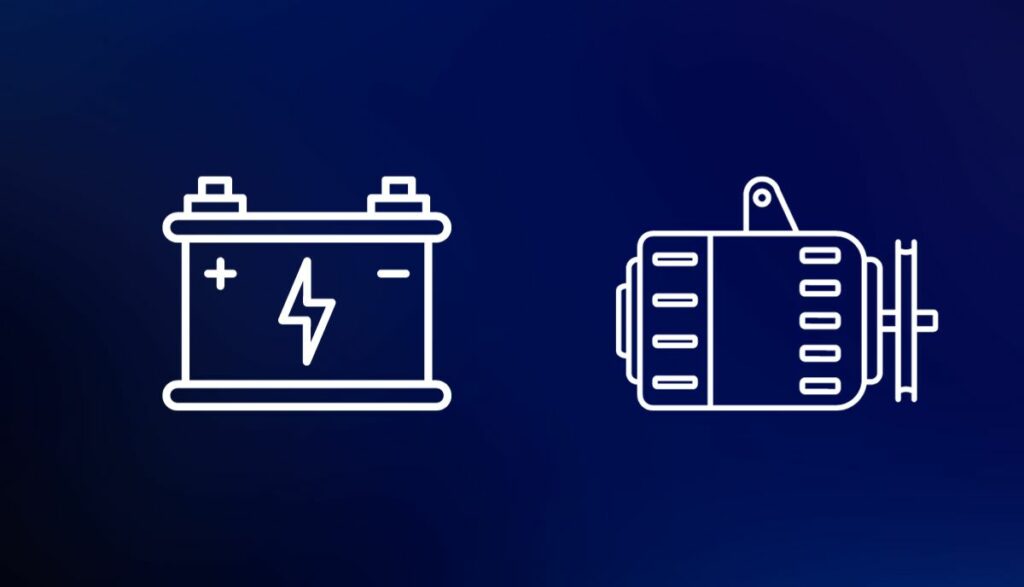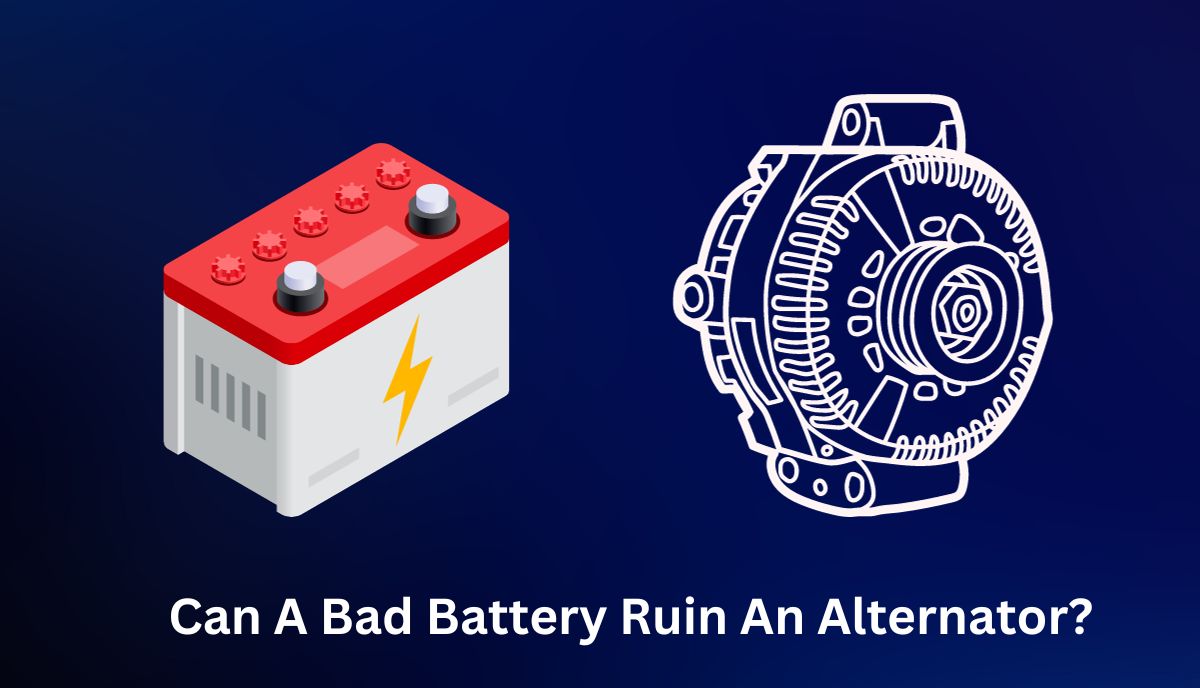The battery and alternator are intimately intertwined. You can’t use one without the other, at least not in a vehicle. But does that mean a weak or damaged battery can harm the alternator?
A weak battery can overload and overwhelm the alternator, reducing its life expectancy. Don’t be surprised if the alternator fails prematurely without warning.
The battery is a car’s primary power source. However, it can’t run the vehicle’s electronics. They will drain it. The battery will start the engine before passing the baton to the alternator.
A running engine turns the alternator. The alternator converts mechanical energy into electrical energy that charges the battery and powers the vehicle’s accessories. As you can see, these components depend on one another.
The alternator cannot work without the battery because the engine won’t start. On the other hand, a car will move in the absence of an alternator, but the battery won’t charge. Without the alternator, the accessories will deplete the battery, preventing the engine from starting the next time you shut it down.
How Does A Bad Battery Damage An Alternator?

It seems somewhat absurd to think that a defective battery can ruin an alternator. But it happens. To understand the relationship between bad batteries and faulty alternatives, you must keep the following in mind:
- Alternators consist of a rotor, voltage regulator, stator, and bridge rectifier.
- The rotor has a coil of wire that generates a magnetic field.
- The voltage regulator governs the current flow. It will increase or decrease the power flowing to the rotor depending on whether it detects high or low voltage in the system.
- The stator has three wire coils excited by the rotor’s magnetic field.
- The bridge rectifier turns AC into DC.
- In a moving car, the alternator fills the battery and powers the electronics.
- The battery will continue taking the alternator’s current until it fills.
- The alternator’s output will depend on the load exerted by the vehicle’s accessories.
But how does this explain a battery’s ability to harm the alternator? You have the following concerns:
- Weak Batteries Consume A Lot Of Current
According to Continental Battery Systems, alternators pull more power from the engine to recharge weak batteries. This is why cars with weak batteries use more fuel. The battery’s increasing current demand will lower the system voltage.
The voltage regulator will step in to increase the current running through the rotor. Expect a lot of wear and tear in an alternator that is forced to send the maximum current through the rotor, brushes, and slip rings for an extended period.
- A Short Forces The Alternator To Run At Full Output
The alternator’s initial current output is high. However, it eventually tapers off. A battery-related short can cause the alternator to run at full output until it overheats. The rotor winding insulation won’t survive.
This is less of an issue in large commercial alternators, which manufacturers design to deliver their full output continuously. However, they can also fail if the voltage is erratic. At the very least, the regulator will fail prematurely.
- A Dead Battery Will Cause Overheating
The experts at Optima Batteries warn consumers against using alternators to recharge deeply discharged batteries. They’ve also included a picture of a label on an alternator discouraging them from charging a dead battery because doing so exposes the alternator to premature failure.
You will void your warranty. Manufacturers expect their alternators to charge batteries that are nearly full. An alternator attempting to charge a dead battery will run hot until it fails.
- Voltage Fluctuations Can Harm The Alternator
What happened to the battery? Did it merely discharge, or have you noticed broken internal connections? Some faults create voltage fluctuations with enough potency to kill the alternator. Many laypeople disconnect the battery in a car with a running engine, which can burn out the alternator’s diodes, compelling you to buy a replacement.
Keep this in mind the next time an inexperienced technician attempts to test the alternator by removing the battery in a car with an active engine. Admittedly, alternators have regulators that defend against transients. But you shouldn’t take any chances unless you know what you’re doing.
How To Tell If A Bad Battery Is Causing Harm To Your Alternator?

This is somewhat tricky. Usually, experts will encourage you to look for signs of a bad battery, such as the following:
- The dashboard lights will dim.
- The radio may refuse to work.
- The headlights will flicker.
However, a dead battery tends to impact the vehicle’s electrical system. That creates confusion because a bad alternator attracts similar symptoms. You can differentiate between alternator and battery problems by inspecting the battery:
- Do you see corrosion on the battery terminals?
- Are the cables secure?
- Is the battery swollen? Bulging is an undeniable sign of wear and tear.
Some batteries won’t manifest physical symptoms, but you should replace them all the same once they exceed the life expectancy stated in the manual. If the battery is new, replace it with a functional battery from a different car and record the results.
Do the symptoms persist? Do they get worse? The response you observe will determine your next step. Naturally, the only way to definitively rule out the alternator as a potential culprit is to test it.
The test mentioned above is popular. You can disconnect the battery to see whether the vehicle keeps running. However, the strategy is risky because it can damage the car’s electrical accessories. You’re better off relying on a multimeter or taking the device to an expert for further inspection.
Protecting Your Alternator: What To Do If You Suspect Your Battery Is Causing Issues?

Use the following steps to protect your alternator from the consequences of an old, worn-out, or damaged battery:
- First of all, don’t use the alternator to charge a deeply discharged battery. Connect a battery charger instead.
- If you have a weak or dead battery, jump-start the vehicle and drive for half an hour. Try to attain the RPM the manual recommends for charging the battery. Sometimes, this means revving the engine.
- Don’t exceed the battery’s life expectancy. Some people prefer to use their batteries until they stop working. But you may harm the alternator in the process. Replace batteries that exceed their lifespan, regardless of whether or not they’ve shown symptoms of wear and tear.
- Keep the battery terminals clean. Use baking soda to remove corrosion.
- Clean the battery. Remove any dirt, debris, and grime you see.
- Apply terminal spray to prevent corrosion.
- Use a battery heater to protect the battery during cold weather.
- Check and replace the drive belt when it incurs damage.
- Don’t let your car go unused for a long time. A thirty-minute drive every week is enough to maintain the battery. The battery in a dormant car will discharge completely.
- Don’t leave the vehicle’s accessories on when you shut the engine down. You will drain the battery. You should only use the accessories when the engine is running.
- Whenever you service the car, don’t forget to test the battery with a voltmeter. Digital meters are convenient.

